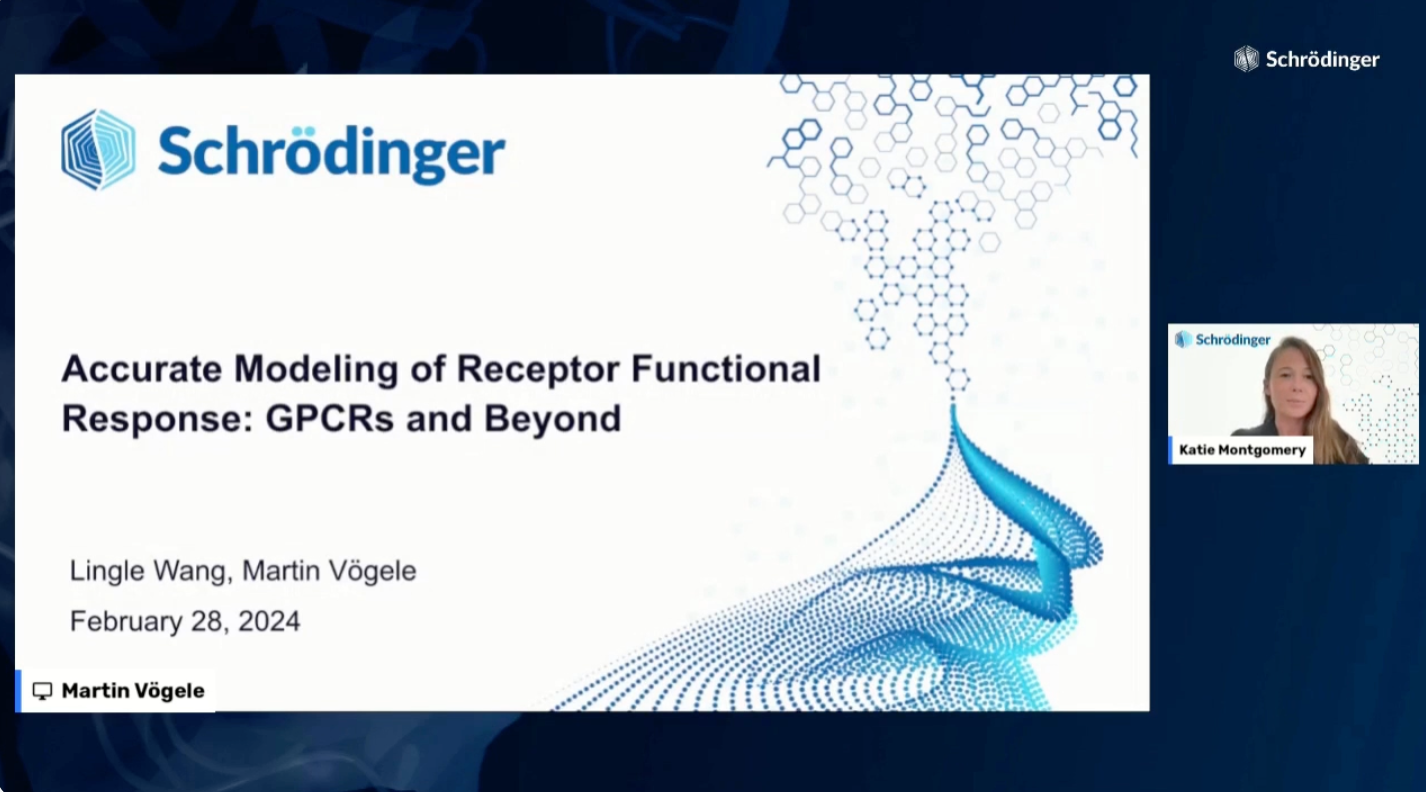
FEB 28, 2024
Accurate modeling of receptor functional response: GPCRs and beyond
For a drug to be effective, potent binding to the target protein is a prerequisite, but it is not sufficient. Rather, in order to produce the desired functional response, the drug must either inhibit the function of the protein or modulate the activity of the protein, most typically by modifying its conformational equilibrium. The long timescales for such protein conformational changes prohibit them from being directly modeled via physics-based simulations. However, our recent work has demonstrated that the consequences of these long-timescale processes can be accurately modeled with alchemical free energy calculations using FEP+.
In this webinar, we present a tractable and computationally efficient protocol that can accurately and reliably predict the functional response of a receptor to ligand binding, including:
- The use of Absolute Binding Free Energy Perturbation (ABFEP) to score the difference of the ligand bound to active and inactive states of the receptor and accurately predict the functional response of ligand binding
- Validation on a large set of systems including eight G protein-coupled receptors (GPCRs) and one nuclear receptor
- How this FEP-based workflow can be used to achieve unprecedented performance in classifying ligands as agonists or antagonists in drug discovery programs
- Best practices for applying this approach to your own research projects
Our Speakers

Lingle Wang, PhD
Senior Vice President, Schrödinger
Lingle Wang, senior vice president, scientific development, joined Schrödinger in 2012. He is responsible for advancing Schrödinger’s physics-based computational drug discovery platform. He obtained his Ph.D. from Columbia University working with Professors Richard Friesner and Bruce Berne on methods to quantify the role of water molecules in protein-ligand binding, enhanced sampling in biomolecular simulations and free energy calculations. Lingle has published extensively in the areas of free energy methods development and applications in drug discovery.

Martin Vögele, PhD
Senior Scientist I, Schrödinger
Martin Vögele is a senior scientist in the life science software department at Schrödinger, Inc. in New York City. Previously, he was a postdoc in computer science at Stanford University where he worked on simulations of G-protein-coupled receptors and on machine learning for structural biology and drug discovery. Before moving to the United States, he obtained a PhD for work on diffusion and self-organization in lipid membranes at the Max Planck Institute of Biophysics in Frankfurt, Germany.